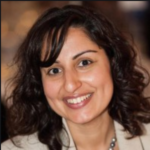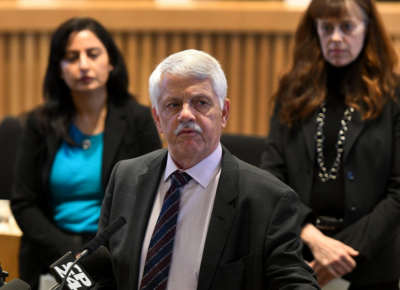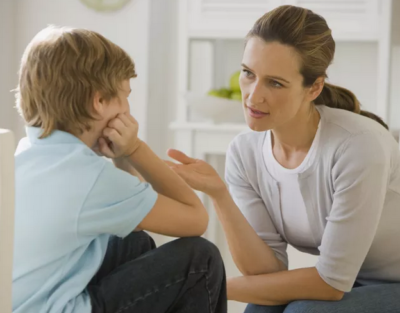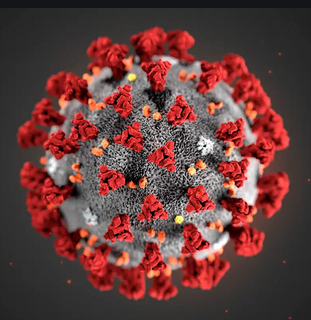 By Pepper Parr
By Pepper Parr
September 1st, 2020
BURLINGTON, ON
Dr. Hamidah K. Meghani told the several thousand people who logged into the Virtual Town Hall last week: “We’re here for you!”
Dr Meghani is a Commissioner with the Region of Halton and the Medical Office of Health.
She is a parent with children; has called Oakville home for more than seven years.

Dr. Hamidah K. Meghani is a Commissioner with the Region of Halton and the Medical Office of Health.
Born in India, Meghani’s family immigrated to Canada when she was a child. She said she remembers seeing the impact of poverty on people in India and learning from her parents the importance of helping those in need. She credits these early experiences with helping to guide her to a career in public health.
She completed a Masters of Public Health in Family and Reproductive Health at Columbia University in New York City. She is a certified family physician, has completed training in public health and preventative medicine and is a Fellow with the Royal College of Physicians and Surgeons.
During much of 2011, Meghani interned at Halton Region under former MOH Dr. Bob Nosal, who she succeeded after his 25 years in the role.
The incoming MOH earned her medical degree from McMaster University in 2007 and did her residency at the University of Toronto, spending two years at St. Michael’s Hospital.
The pandemic we are dealing with is what she spends every waking hour of every day focused on.
It is not the job she thought she had when she was hired from the city of Hamilton a number of years ago – but it is the job she has learned to do and at this point is doing as well as anyone can expect.
The Regional Councillors can’t lay enough praise at the woman’s feet.
The public, especially parents with children in school, aren’t quite as positive. They are anxious and at some levels confused.
Meghani doesn’t make the rules. Her job is to interpret the rules to the best of her ability and do her level best to ensure that the public is safe.
When the province imposed a lock down on everyone and the public health units began to get reports of people infected with the Covid-19 virus the Public Health Unit had to find or create resources to meet the challenge.
On balance the Region of Halton has been spared when looked at on a per capita basis.
The geography helps – we don’t have any pockets of dense population and few people were going to their offices.
That is expected to change when students are back in school and parents begin to go back to their offices.
There was a tragic outburst at a long term care home in Halton Hills where 11 lives were lost. That location was a private operation with a solid reputation.

One of the first public briefings Dr. Meghani took part in was a learning experience. She grew into that part of the job – but prefers to work at a distance (this was her mode of operation well before Covid-19) Here she supports Hamilton Health Sciences physician-in-chief Dr. Barry Lumb provides details after an oncologist at Juravinski Cancer Centre has tested positive for coronavirus. |
Halton has four long term care homes run by the Region – there has not been one reported infection at any of the four locations – someone was doing something right.
The major early challenge for the Public Health units was learning how to quickly identify those thought to be infected and have them tested. In the early stages that at times took days and then a few more days to get the results back.
At that point any attempt to trace where the infection may have come from was close to wasted time.
It was several months before the Public Health Unit could get its hands on software that would allow almost instant tracking.
Today when a person is identified as infected the Public Health Unit is able to reach out and be in touch with every person the infected individual might have been with or near.
There is now a team in place that is on top of the tracking that has to be done.
Meghani’s current challenge is to assuage the concerns of parents and convince them that the safest place for their children is in a classroom.
While the numbers are decent – said to be at the 80% level – there are communities in the province where the response is above the 90% level.
The Board has yet to – and probably won’t – release accurate numbers. Their job is to get every child who is normally healthy into a classroom.
Meghani’s job is to help convince those parents that their children will be safe. And that if there is an outbreak in a school there are protocols and procedures in place to ensure that any hot spot is quickly and effectively isolated.
Meghani told the Virtual Town Hall that she and her team have “ been working together with the board at every step of the way through this planning process and we’re confident that we will be able to provide a safe and productive learning environment for students and staff.”

Explaining Covid and its implications to your children is a lot easier than the sex ed conversation you had.
She asked parents to: “Think about your child’s needs”
Does your child have:
• Special learning needs?
• Any medical conditions that may make them prone to severe disease if they get COVID-19?
Talk with your child’s doctor to discuss the risks.
So far, she explained, most children infected with the virus experience mild symptoms.
• Fever
• Cough
• Runny Nose
• Sore Throat
• Headache
• Body Ache
• Diarrhea
Many children have mild or no symptoms. Additionally, children account for a small number of COVID-19 cases overall.
Think about the people with whom you live
Most people will develop minor symptoms and recover on their own.
The risk of severe illness and outcomes is higher for those who are over 70, or who have chronic diseases like diabetes, high blood pressure, heart disease or cancer.
Every family is unique
Decisions around heading back to school will be different for every family depending on:
• their child’s academic needs
• whether their child or household members are at increased risk of severe illness
• the family’s unique situation
The role of Public Health
Setting out what the role of Public Health is during a pandemic should really be: we do what has to be done when it needs to be done and prepare as well as we can for something that is new to everyone.
Work with the school board to ensure measures are in place to protect our students:
• active daily screening
• no mixing of cohorts (or classes) in the elementary years
• ensuring children understand how to properly wear face coverings or masks
• enhanced hand hygiene and cleaning

An illustration of what the covid19 virus is believed to look like
Support development of safe school reopening plans
Provide recommendations and resources to help school boards and private schools develop policies and procedures, adhere to infection prevention and control practices and plan measures to ensure the health and safety of staff, students, parents/guardians and visitors.
• Support training and educational opportunities
• Develop processes and protocols for managing sick students and staff
• Develop guidance around managing a confirmed case and an outbreak
• Ensure schools have child-friendly resources that support healthy behaviours.
The biggest tool we have working for us is our own individual behaviour. Wear a mask, wash your hands frequently and maintain a safe social distance. That little bugger of a virus wants to jump all over you.
If you want to know more about just how the virus does what it does – check out the link below. If your high school student child has an interest in science – pass it on.
How the virus gets inside you.














